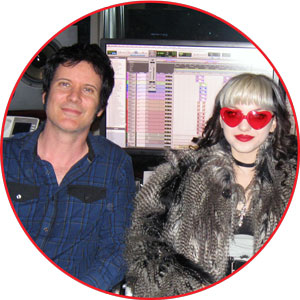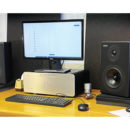
When I mention “record producer” or “recording engineer” to just about anyone in the music business, I usually get an understanding nod. If, however, I say “vocal producer,” more often than not, I see looks of uncertainty about who that is and what they do.
What is it about the vocals that would necessitate a vocal producer? A guitarist doesn’t need a guitar producer, so what about the vocals is different?
Starting in the mid 1980’s, my involvement with producing recorded vocals began as a response to singers coming to me complaining of difficulties in the studio. They were blowing-out and not giving the performance their producer was trying to get from them and recording sessions were arduously dragging on well beyond projected budgets. Over the years my involvement advanced into a more encompassing role––that of vocal producer.
In this article I’ll share with you tips and advice from my own experience working with singers in the studio as well as those of several of my colleagues who are Multiplatinum, Grammy-winning engineers, producers and A&R reps. In the end I hope you will gain an understanding of how a vocal producer might help you record hit songs and when it would be appropriate to involve one in your project.
Let’s start from the beginning. What’s so special about the vocals? What is it about studio singing that would require a specialist?
Vocals Sell the Song
“It’s the singer, not the song,” sang Mick Jagger way back when. Well, okay––the song DOES matter, but I think you get the point: The singer is the focal point of any recording. No matter how great the rest of your band, the audience usually recognizes you by the sound of your singer.
 On your recording, the sound, style, personality and performance of the vocal must be of utmost quality. If so, it will capture attention and interest, building your audience and making hit songs possible for you. In fact, if the singer really knows his/her craft and the recording captures it properly, it’s even possible to transform a “ho-hum” song into something fresh and memorable: such is the potential of an expressive, musical and passionate singer
On your recording, the sound, style, personality and performance of the vocal must be of utmost quality. If so, it will capture attention and interest, building your audience and making hit songs possible for you. In fact, if the singer really knows his/her craft and the recording captures it properly, it’s even possible to transform a “ho-hum” song into something fresh and memorable: such is the potential of an expressive, musical and passionate singer
Studio Singing
Singing in the studio is an art unto itself. As anyone who has both live stage performance and recording experience knows, studio vocal recording is vastly different. To start with, the voice is an acoustic instrument. It is “played” based on how the singer hears herself. There’s a sonic loop between ears and mind that is intuitively used by the singer to monitor the muscle actions of their voice. The many components involved in studio recording can and will influence not only how you sing––affecting your vocal performance—but how you end up sounding on playback. In addition, the choices of gear and various “tricks of the trade,” can greatly influence the sound quality of the vocal recording.
Singer or Setup?
Sometimes the singer is just not ready to go into the studio and lay down an amazing vocal performance; they need more pre-production on the songs and possibly more vocal technique and exercise to develop their voice and sing more freely. But just as often, during my years of coaching and producing singers in studios around the world, I’ve witnessed many producers and engineers who thought the singer was subpar when the actual source of the difficulty was poor choice of gear and inappropriate studio set-up.
In one of the first recording sessions I was brought into, the vocalist was having a great deal of difficulty singing the high notes on pitch and without strain. The producer kept whispering to me that the singer had a big pitch problem. After a few takes that were pretty bad, I went into the vocal booth, put on the headphones and asked for the track to begin playing. As I tried singing into the mic, I found that the EQ cut off the treble part of the sound spectrum. This made singing the higher notes impossible! I directed a change in the headphone EQ so as to “open” the treble and instantly the singer had no pitch problems.










